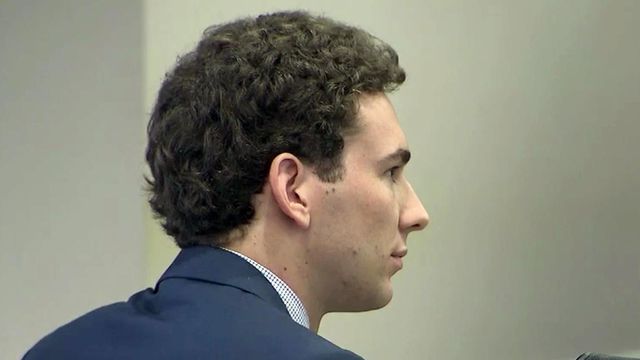Defense still trying to keep evidence out of fatal I-85 crash trial
With the trial of a former University of North Carolina at Chapel Hill student accused of killing three people a year ago in a wrong-way collision on Interstate 85 set to start in two weeks, defense attorneys are making a last-ditch effort to keep jurors from hearing evidence about his blood-alcohol level and information from his cellphone.
Posted — UpdatedAuthorities said Chandler Michael Kania was driving north in the southbound lanes near the split of I-85 and Interstate 40 in Orange County on July 19, 2015, when his Jeep Wrangler collided with a Suzuki driven by Felecia Harris.
Harris, 49, of Charlotte, her friend Darlene McGee, 46, of Charlotte, and Harris' granddaughter Jahnice Beard, 6, of Brooklyn, N.Y., were killed in the fiery wreck. Harris' daughter, Jahnia King, 9, was seriously injured.
Kania's trial on charges of second-degree murder, felony death by motor vehicle, felony serious injury by motor vehicle, driving while impaired, driving left of center, obtaining alcohol by a minor and underage consumption of alcohol is set to begin Oct. 3.
Defense attorneys this week filed motions alleging that authorities illegally took a blood sample from Kania after the crash and wrongly obtained a search warrant for his iPhone. Superior Court Judge Allen Baddour said he could rule on the motions as early as Monday.
Toxicology tests show that Kania had a blood-alcohol content of 0.17, which is more than twice the level at which a driver is considered impaired under North Carolina law. Because Kania was 20 at the time, however, any alcohol in his system would have been illegal because he was underage.
The defense motion says Kania was strapped to a backboard in an ambulance and had lost consciousness for a time after the crash, so he couldn't have consented to a State Highway Patrol trooper's request for a blood sample.
Trooper Stephen Foster testified in a hearing Friday that there was a strong odor of alcohol in the mangled Jeep, and beer cans were strewn about the median.
"He advised me he'd been drinking two hours prior to the collision," Foster said of Kania. "He was very polite and cooperative. He responded such as when asked for his ID. He did understand what was being asked."
Defense attorney Russell Babb noted that Foster wrote in his report of the crash that Kania didn't remember talking with the trooper at one point and that he seemed unaware of the three victims, whose bodies were nearby.
The second motion states that troopers didn't provide enough supporting evidence to justify the search warrant for Kania's phone, so the search was illegal.
Highway Patrol Sgt. John Collins said investigators wanted to examine the phone's contents to determine if the crash was "done on purpose or done to harm himself."
Investigators say hundreds of images were taken from the phone. According to prosecutors, Kania's friends fought with him prior to the crash and, in an attempt to keep him from driving, they took his phone.
Kania's lawyers have tried to suppress the blood and phone evidence before. A judge two weeks ago dismissed their argument that the phone was illegally seized. The defense withdrew an earlier motion that the emergency medical technician who took Kania's blood wasn't qualified to do so.
• Credits
Copyright 2024 by Capitol Broadcasting Company. All rights reserved. This material may not be published, broadcast, rewritten or redistributed.






